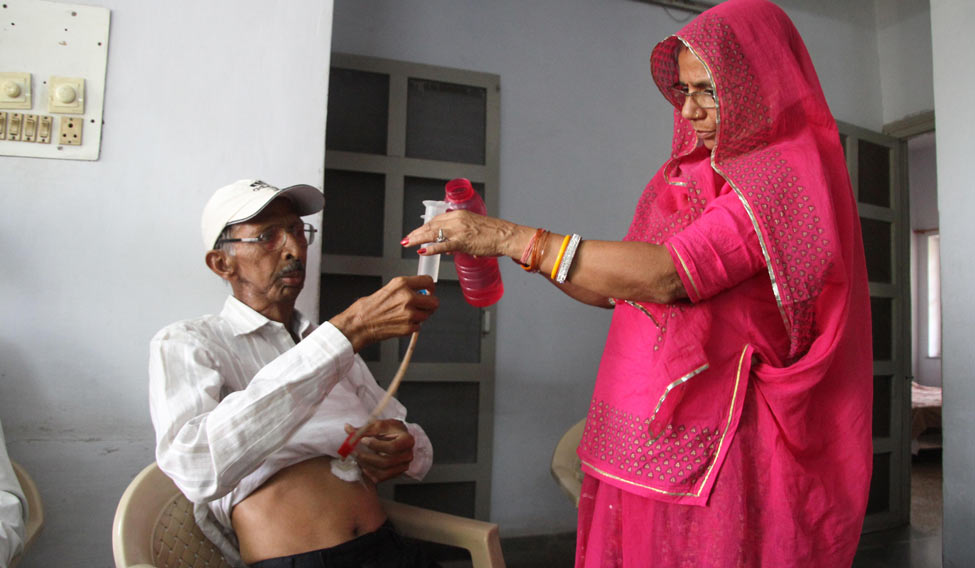For more than three decades, Shravan Singh worked at a private company in Ahmedabad that manufactured various products from asbestos, driving vehicles that transported the products.
For someone who received formal education only till class five, getting Rs 10,000 a month was by no means a meagre amount. But now, aged 60, Shravan has paid a heavy price. He suffers from 'laryngeal cancer casually related to asbestos'.
“Four years ago a knot developed near my husband's tongue. We did chemotherapy. We thought it would be fine. But the treatment still continues,” says Bhanwar Kanwar, his wife. Since November 2016, Shravan takes food through rice pipe.
Similar is the case with Bhavani Singh who suffers from primary cancer of larynx. Bhavani claims that he has neither used cigarette nor tobacco in his life.
There are nearly 900 workers in the unit, he says. If Bhavani is to be believed, asbestos fibres are all over in the air.
Shravan and Bhavani are not the only ones who have faced the occupational hazards of asbestos.
In its report 'India: National Asbestos Profile', the People's Training and Research Centre (PTRC) for Occupational and Environmental Health Network India says that there is a possibility of nearly two to three million workers being exposed to hazardous diseases, especially asbestosis and different types of cancer, because of the fibre.
However, there is no data available in India on the number of people affected due to asbestos, says Smriti Upadhyay, a doctorate student at John Hopkins, and one among the several who contributed to the report.
Jagdish Patel of Vadodara-based PTRC, while launching the report in Ahmedabad, said of the 201 large, medium and small units in the country that manufacture materials from asbestos, the highest number of units—at 98—are in Gujarat, followed by Maharashtra.
Demanding a ban on such units, Patel said while asbestos mining has been stopped in India since 2003, its import has been on a gradual rise.
According to the report, India is one of the world's largest importers of asbestos. In 2015, it imported more than 3,70,000 tonnes of asbestos, with the trade value totaling over $239 million. This accounts for 57 per cent share of the total imports of asbestos worldwide.
India's consumption has continued to grow and in 2013-14, it consumed 2,86,001 tonnes of asbestos, the report further says. Today, India is Asia's second-largest consumer of asbestos after China, Patel said.
He questioned as to why it cannot be banned when 55 countries from around the world have banned it already. For instance, in Sri Lanka, roof sheets made of asbestos will be banned from 2018. Nepal also has banned it.
Patel said it was unfortunate that there was probably no capacity to diagnose the effects of asbestos in India. As per the data available, about 90 per cent of the asbestos in India is used in making of cement sheets and the remaining 10 per cent are used in about 3,000 products, including break liners.
Moreover, what is worrisome is that no permissible limit has been set for asbestos, he said.
Patel pointed out that when Anil Madhav Dave took over as the Union Environment Minister from Prakash Javdekar he had said they would look into the hazards of asbestos.
Ahmedabad-based Raghunath Manvar said it takes years to diagnose the effects of asbestos. He claimed he had found cases of cancer even in power plants as asbestos is used for insulation at several places.





